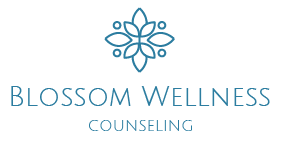Blog
Blog

What is Self-Awareness and Why Does It Matter?
Self-awareness is the ability to observe and understand your own thoughts, emotions, and behaviors. It's a foundational skill that helps you better understand who you are, why you do the things you do, and how your actions impact others. Being self-aware allows you to make informed decisions, improve relationships, and navigate life with a greater sense of control.
In a world where we often rush through our daily routines, it’s easy to lose touch with ourselves. Yet, developing self-awareness can lead to profound personal growth and improved well-being.
Let’s explore what self-awareness is, why it matters, and the two main types of self-awareness.
Why Does Self-Awareness Matter?
Self-awareness is a powerful tool for personal and professional success. Here's why it matters:
Improved Emotional Intelligence – Being aware of your emotions helps you manage them more effectively. It enables you to respond thoughtfully to situations rather than reacting impulsively.
Better Decision-Making – With self-awareness, you are more likely to make decisions that align with your values and goals.
Stronger Relationships – Understanding your own behavior and how it affects others can lead to healthier and more harmonious relationships.
Increased Confidence – When you understand your strengths and weaknesses, you can focus on building your confidence in areas that matter most.
Personal Growth – Self-awareness opens the door to continuous self-improvement. You can learn and grow from experiences by reflecting on your actions and thoughts.
While self-awareness may sound like an abstract concept, its benefits are very practical and can lead to a more balanced and fulfilling life.
Two Types of Self-Awareness: Internal vs. External
There are two primary types of self-awareness: internal and external. Both are crucial for understanding yourself, but they focus on different aspects of your experience.
1. Internal Self-Awareness
Internal self-awareness is the ability to recognize and understand your inner state: your thoughts, feelings, and desires. It involves self-reflection, which helps you gain insight into why you think, feel, and behave the way you do.
Internal self-awareness includes:
Understanding Your Emotions – Being able to identify what you're feeling and why. For example, when you're stressed, you can pinpoint whether it’s because of work, personal life, or something else entirely.
Recognizing Your Values and Beliefs – Internal self-awareness helps you understand what is important to you and how your values influence your decisions.
Self-Reflection – Regularly reflecting on your actions and behaviors and asking yourself questions like, "Why did I react that way?" or "What motivated me to make that choice?"
Understanding Your Strengths and Weaknesses – Internal self-awareness gives you a clear picture of where you excel and where you might need more development.
The benefits of internal self-awareness include improved emotional regulation, better coping strategies, and a stronger sense of identity. When you understand your inner world, you are more equipped to handle life's challenges with a sense of calm and purpose.
2. External Self-Awareness
External self-awareness, on the other hand, is the ability to recognize how others perceive you. It involves understanding how your actions, words, and behavior affect those around you. This type of self-awareness is essential for building meaningful connections and interacting effectively with others.
External self-awareness includes:
Recognizing Your Impact on Others – Being aware of how your actions and words influence the emotions and behavior of those around you.
Understanding Social Cues – Paying attention to nonverbal signals, like body language and tone of voice, to better gauge how people are feeling.
Considering Other Perspectives – Being able to step outside of your own viewpoint and see things from others' perspectives. This can improve empathy and communication.
Seeking Feedback – Actively asking for feedback from others about how you are perceived. This can help you grow and adjust your behavior if needed.
The benefits of external self-awareness include stronger relationships, better communication skills, and the ability to adapt to different social situations. It builds empathy and understanding, which can help you connect with people on a deeper level.
How to Develop Both Types of Self-Awareness
Developing both internal and external self-awareness requires ongoing effort and practice. Here are some practical strategies to help you grow in both areas:
Tips for Strengthening Internal Self-Awareness:
Engage in mindfulness practices, such as meditation or journaling, to tune into your thoughts and emotions without judgment.
Set aside time each day or week to reflect on your actions and behaviors. Ask yourself what went well and what could have been done differently.
Pay attention to the situations or people that trigger strong emotional reactions in you. Understanding these triggers can help you manage your responses.
Write down your thoughts and feelings. This can help you clarify your emotions and gain insight into your internal world.
Tips for Strengthening External Self-Awareness:
Regularly seek feedback from friends, family, or colleagues about how you come across in different situations.
Pay attention to body language and facial expressions in conversations. Are people engaged or disengaged? Are they showing signs of frustration or understanding?
Practice putting yourself in others’ shoes. This helps you understand how your actions may affect them and how to adjust accordingly.
When conversing with others, focus on truly listening and understanding their perspective, rather than just waiting for your turn to speak.
Self-awareness is an essential skill for living a fulfilling and successful life. As you continue to grow in self-awareness, you'll discover a greater sense of peace, clarity, and purpose in your life.
Get the support you need to create calm confidence that lasts
Get the support you need to create calm confidence that lasts
Copyright@2023 Blossom Wellness Spa, Inc.
Copyright@2023 Blossom Wellness Spa, Inc.



